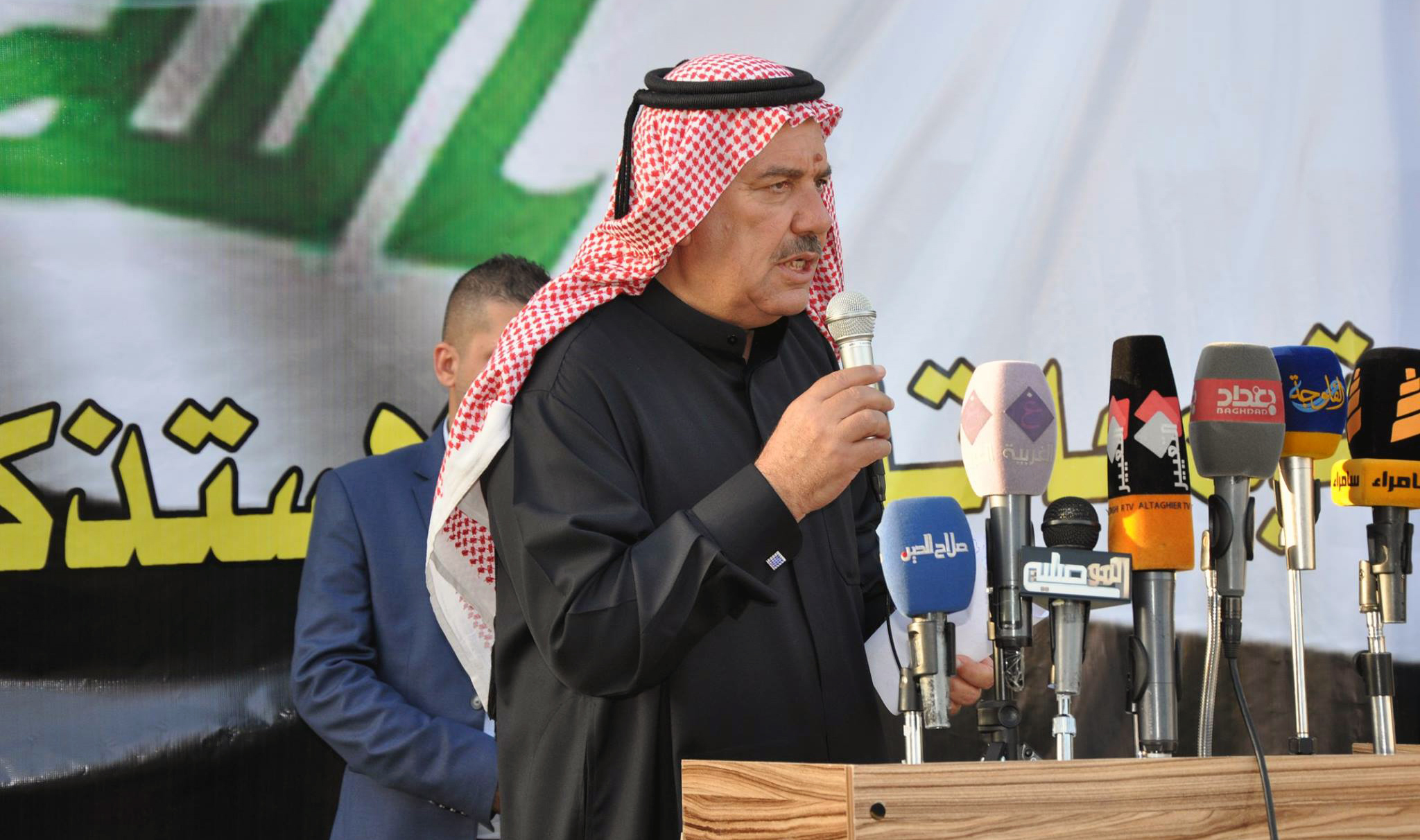A Kirkuki adviser of the Iraqi president believes the problem of disputes over the ownership of agricultural lands in Kirkuk will not come to end easily and afirms recourse to law is the only solution and the Iraqi parliament to play its vital legislative role.
Ismail Al-Hadidi, advisor of the Iraqi President and one of the notables of the Al-Hadidi Arab clan in the Kirkuk province told KirkukNow in an interview about the continuation of conflicts between farmers from the different communities of Kirkuk overlandfarm owenrship.
Ismail Al-Hadidi says that the Agricultural Lands Authority in Iraq was formed in 2005. "This authority took on the issue of disputes over the ownership of agricultural lands in the transitional phase, but the authority was resolved and the problem of agricultural lands remained pending."
“The biggest problem with solving the issue of agricultural land is that it was legally processed so it can only be solved through law,” Al-Hadidi said.
In the late seventies of the last century, the Baath Party chaired by Saddam Hussein, distributed a large part of the lands of the Kurds and Turkmens in several areas of Kirkuk in the form of agricultural contracts to Arab farmers, most of whom came from central and southern Iraq.
The process took place according to decisions issued by the Revolutionary Command Council, and therefore it is legally effective which requires repeal of the enactment of laws by the Iraqi parliament.
After the fall of the Saddam and Baath regime in 2003, many of the Arab settlers were compensated and left those areas back to their hometowns. In return, Turkmen and Kurdish farmers started cultivating the lands again, but some setllers returned to reclaims the lands after the events of October 2017 when Iraqi army and Popular Mobilization Forces PMF (Hashid al-Shabi) expelled the Kurdish Peshmerga forces from the disputed territories between Baghdad and Erbil centered in Kirkuk.
Currently, Iraqi army, local and federal police, Brigade 61 of Special Forces along with Shiite paramilitary of Popular Mobilization Forces PMF, are under Kirkuk joint operations’ command, an umbrella for the security forces running the security of Kirkuk province.
The problem of agricultural land in Kirkuk governorate will not come to end so easily
"After the work of the provincial councils ended (late 2019), some Arab farmers submitted complaints through the courts and succeeded in resolving them in their favour, and the Department of Agriculture implemented the court's orders... Therefore, from an administrative point of view, the work of agricultural contracts by the Ministry of Agriculture is still in force," Hadidi recalls
Last October, the conflicts between Kurdish and Arab farmers in several villages belonging of Sargaran sub-district of Kirkuk mounted to almost direct confrontation. The Iraqi army units deployed in the region intervened to calm the situation and prevent clashes.
At the present, the residents of 35 villages in the Sargaran district, west of Kirkuk, mainly Kurds, live in constant concern because of the unresolved issues related to the ownership of agricultural lands in those villages.
Al-Hadidi, who is considered one of the key figures which the Presidency of the Republic has repeatedly consulted on this issue, thinks, "the problem of agricultural lands in Kirkuk will not come to end so easily, unless several administrative and investigation committees are formed in those areas and preparations for dialogue between the notables of the region’s clans, and then a decision (law) by Parliament.”
This comes at a time when Parliament has previously formed investigation committees for this purpose, but these committees have not reached a conclusion.
Not all Arabs in those villages are settlers
Al-Hadidi said that he was familiar with the work of the parliamentary committee and that the results of its work were not satisfactory, without giving further explanations.
On 23 September 2020, the Iraqi Ministry of Justice issued a decree ordering to disregard all contracts and leases from the Ba’th regime period in relation to agricultural lands, but Kirkuk’s Department of Agriculture refused to abide.
Ismail Al-Hadidi believes that everyone claims in some way their ownership of these lands, “but some of these allegations are not true.”
"For example, in a village called Qizilyar, a farmer owns 20 dunams registered in his name but later took over an additional 80 dunams and now he claims the ownership of the 100 dunams while he owns only 20 dunams."
Al-Hadidi believes that Those allegations further complicated the problems.
"Not all the Arabs in those villages can be considered settlers, this point must be taken into consideration. For example, agricultural contracts were issued for the Shammar tribe in Dibis (Dubiz) district in the 1970s but they are not Arab immigrants, because they settled in That area since 1963.”
“These people now have legal documents represented in agricultural contracts, so they resorted to the court, which in turn restored them their rights," Hadidi elaborated.
"The only solution is first through dialogue and understanding, and then solving problems through the Iraqi law and parliament... This is the only solution."





